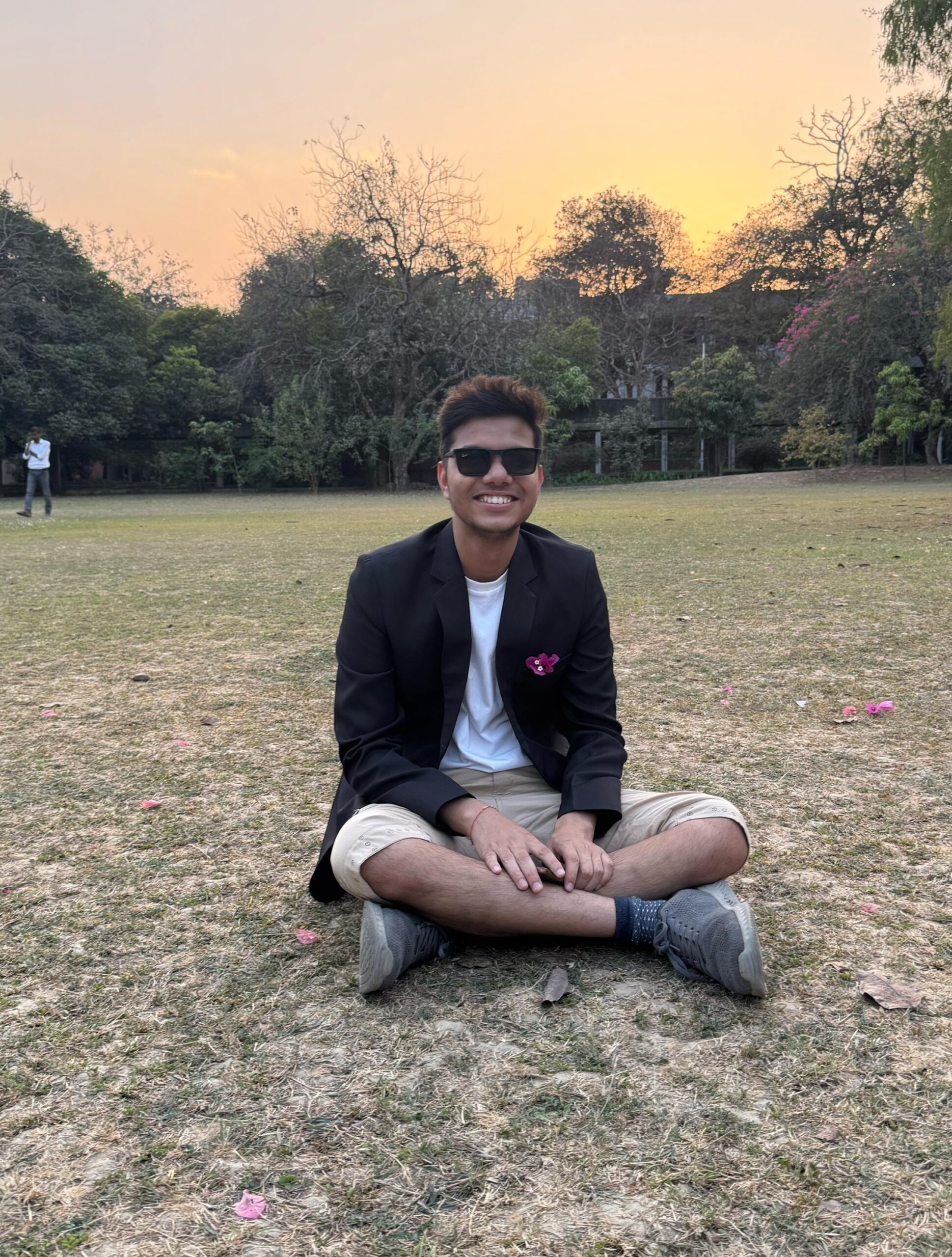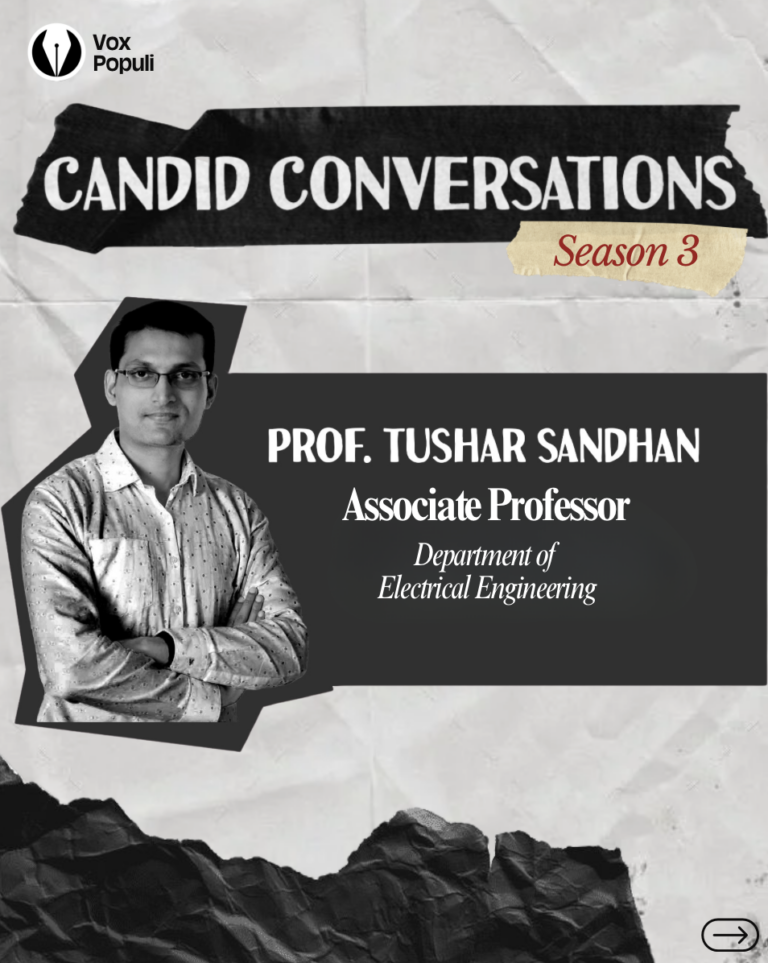Disclaimer: Vox Populi, IIT Kanpur, is the exclusive owner of the information on this website. No part of this content may be duplicated, paraphrased, or interpreted in any other way without written consent from Vox Populi. If you want to reproduce any of the content on this page, please contact our chief editors directly or reach out to us by email at voxpopuli@iitk.ac.in.
In this 5th edition of As We Leave, Shivansh Gupta, a Y21 student graduating from the Department of Economic Sciences, reflects on his time at IITK not just as a campus, but as a lifetime lived in miniature. From the rush of responsibility to quiet moments of self-discovery, he shares how adulthood on campus became a mirror for real life—full of questions, growth, and gratitude. What if your years here weren’t just preparation for life, but a parallel to it? Dive into a story where every semester echoes a new stage of living, and leaving is just the start of another beginning.
Disclaimer:- The views presented below are the author’s own and are not in any manner representative of the views of Vox Populi as a body or IIT Kanpur in general. This is an informal account of the author’s experiences at IITK.
As I leave this campus…
…there’s a strange quietness settling in. The kind that comes not from the absence of noise but from the presence of a thousand memories brushing past all at once. Hallways I once rushed through now ask me to slow down. Places I barely noticed now seem to stare back. And somewhere between the sound of packing tape and farewell hugs, I find myself wondering—not just about what I did here but about what this place really was.
Because IIT Kanpur wasn’t just a college. It was a life. A full one. It had its childhood, adolescence, adulthood, and now, in its old age, it feels like a time to reflect, to forgive, to thank, and to understand.
In these eight semesters, I didn’t just pass courses – I passed through versions of myself. Made decisions that echoed longer than I thought they would. Met people who, knowingly or not, changed me. Faced questions I thought were too early for my age. And found that this place quietly mirrors the life we’re all heading into – just compressed into four years. So maybe, instead of looking at college as a break before “real life”, we should treat it for what it truly is – a rehearsal, a simulation, a very real version of life itself.
This isn’t just a story of my time here.
It’s a journey through that life.
And maybe, in revisiting it, you’ll find glimpses of your own too.
Childhood
“What’s this place?” “How do I fit in?” “Will I be able to survive this place?”
Like most babies dropped into a new world, I entered IIT Kanpur with big eyes, a clean slate, and no clue what to expect.
The first semester felt like crawling in a jungle gym where everyone else seemed to be sprinting. People around me were cracking codes – literally and socially, while I was still figuring out how to break the ice, within the complexities of an online semester.
I remember standing in Audi during Orientation, smiling awkwardly at strangers, unsure whether they’d become lifelong friends or just classmates I’d forget. I didn’t talk much at first. I observed. I noticed how fast things moved, how people bonded, and how quickly expectations started building.
“Chapu banna hai” was a phrase that echoed in my head a lot – though I wasn’t sure what it even fully meant. Was it about CPI? PoRs? Coding? Coolness?
Looking back, I think the confusion was the point. Childhood isn’t about having answers—it’s about absorbing the world without filters.
And slowly, I did. I started stepping out more, began to take part in competitions, and tried not to look awkward during conversations.
The second semester felt like taking my first few steps without falling every time. I had found some footing – friends in the wing, a circle I could laugh with, and spaces where I didn’t feel invisible.
I was still unsure, still asking questions like a child, but now the questions were changing:
“What do I enjoy?”, “Who do I vibe with?”, “Where do I want to spend my energy?”
And somewhere between club orientations, late-night talks, and rides around campus, I stumbled upon my first bit of gyan from IITK: In the beginning, everyone feels lost. You don’t need to be the fastest runner. You just need to enjoy learning how to walk, and most importantly, keep moving.
Early Adulthood
The toddler learns to walk, and now chooses where to go: “Where do I want to spend my time? What truly matters here? What kind of person am I becoming?”
These third and fourth semesters felt like growing into early adulthood — with each club/ cell recruitment, play turning into purpose. The carefree “exploration” of earlier days gave way to deliberate club choices. It wasn’t about trying everything anymore; it was about committing, building, and doing things well.
FAC became a big part of my life then. I wasn’t just attending events—I was leading, competing, and mentoring. New experiences like grinding endlessly during Inter IIT and competitions, planning and executing events, bonding with batchmates during SPO duties, and not to forget the big fat parties, were coming in fast. For the first time, I felt the joy of creating something bigger than myself. I also started saying no to some clubs and activities, not from burnout but from clarity. I understood my limits, my priorities, and the importance of doing justice to the commitments I made, not only professionally, but personally. That winter, exposure to SPO hit me with the reality of placements and life in the latter half of IITK.
But the real magic wasn’t in building a perfect resume – it was in how I started seeing myself differently. By having bullas with friends, doing side fun activities during intense pressure times, and spending nights listening to life situations (and trying to resolve them), I learned what it meant to be consistent, dependable, and thoughtful – not just in work, but in relationships too. Late-night rants, long walks, or simply being there for others weren’t just ways of spending time – they were moments that quietly built trust, deepened connection, and nurtured a kind of growth no bullet point could ever capture.
Looking back, this phase redefined how I valued my time, trust, and contribution. I might not have seemed emotionally available then – maybe I looked distant or too focused—but I appreciated deeply those who stood by me, gave me space, and stayed connected.
These semesters taught me: Identity is a work in progress. You’ll question yourself a lot, but that’s part of growing. Don’t rush it—let the process unfold.
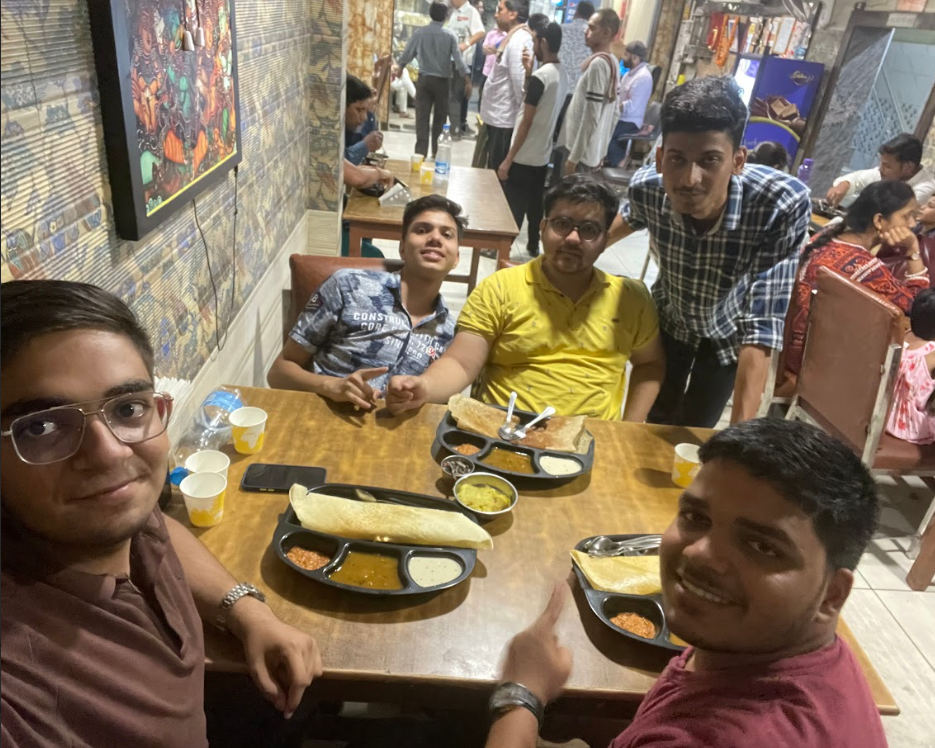
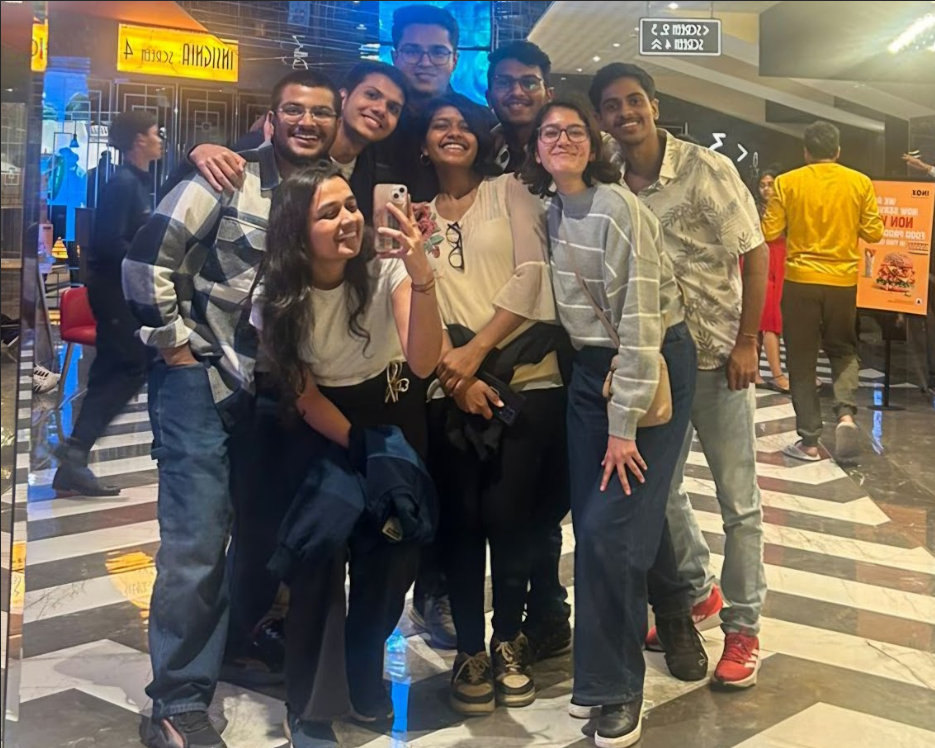

Adulthood
The teen soon realises, and questions the practicalities of the harsh life: “Why does everything feel heavier now?”, “How do you keep going when there’s too much on your plate?”, “Is this what it means to grow up?”
Somewhere between the thrill of exploring and the calm of reflecting, there comes a phase where things simply demand more, be it the intern drive, the club work, or the deepening relations, it’s like being needed in places that matter. And with that came the kind of growth that’s less visible but far more defining. This is adulthood.
The fifth semester began at a pace that didn’t allow much pause. Club responsibilities had deepened – coordinating events, mentoring juniors, staying active in council work—all the while managing the emotional turbulence. There was barely a moment untouched by some form of responsibility.
And yet, amidst the chaos, something shifted. A rhythm emerged. Not a perfect one – but a lived one. Pitching for sponsors for NCW, and juggling the Inter IIT prep camp with the friends’ intern BT, it became clear that growing up wasn’t about mastering everything. It was about learning how to stay grounded when things got uncertain. Learning how to function when nothing slows down. There were days when academics had to be managed with minimal preparation, but even in that, there was a quiet trust in the process that had been built. A different kind of learning was unfolding – one that had less to do with syllabus and more with self-discipline, balance, and quiet confidence – a confidence that things will just get through.
Leadership, too, took on a deeper meaning. It wasn’t about being at the center of things or always winning. It was about being there—showing up even when the odds were stacked against you, even when you knew the outcome might not go your way. I understood this more clearly during my second Inter IIT, when uncertainty loomed large. But still, I chose to lead – not because success was guaranteed, but because presence itself mattered. Leadership, I realized, wasn’t about backing off when the path looked tough. Sometimes it was just about standing firm and tall, for others to hold steady. It was during that time I realised: when responsibilities grow, it’s not just strength but presence and support that keep things moving.
As the sixth semester began, the tempo remained high, but the internal lens shifted. There was a growing awareness of time – how limited it was, how fast it moved. And for the first time, I started observing myself more closely. Why do I sometimes withdraw when things get overwhelming? Why do I appear distant even when I care deeply? I understood then – it’s not coldness; it’s my internal way of processing. I may not always speak in big words or grand gestures, but I always feel deeply. I’ve always wanted to be there for people, even if I didn’t always know how to show it. This piece is my attempt to say that.
Semesters 5 and 6 were not just phases – they were a mirror to what adulthood might look like: demanding yet meaningful, exhausting yet rewarding. A life full of expectations, yes—but also full of people, of gratitude, and of inner clarity.
And perhaps the most valuable lesson from this phase was this: Growing up isn’t about becoming harder. It’s about staying soft, even when things get tough. And finding strength not in doing it all alone, but in walking with those who make the weight lighter.
The Mature (or Old) Phase
The man begins to slow, not from weakness, but to finally look back at the road: “Where have I reached?”, “What now?”
By the time I reached my seventh semester, the question that hovered in my mind was no longer restless or urgent. It arrived gently, like a quiet breath after a long run—a moment to pause, sit down, and look back. For the first time in four years, I wasn’t running. No club to coordinate, no internship deadlines to chase, no sleepless strategy sessions. The familiar chaos had settled. And in that stillness, there was something strange—almost unsettling.
I had a PPO in hand—a symbol of achievement that should have felt like a summit. But the summer internship had taught me that not all victories feel like home. Instead of rushing forward, I found myself quietly reflecting on what truly mattered—not just the career I wanted, but the life I wanted to live.
And that’s when one of the deepest truths of this life struck me. It’s not about where you start. It’s about where you want to saturate. Saturation – not in the sense of giving up, but of choosing to pause the hustle. Of deciding to enjoy what you’ve built rather than constantly chasing the next thing.
The time wasn’t about big, flashy milestones. It was deeply personal—a semester dedicated to rebuilding clarity within. While college buzzed around me with placement talks, canteen chatters, and looming deadlines, I was learning to slow down and turn inward. I spent more time reading, reflecting, and being alone—not lonely, but in quiet contemplation. To some, I may have seemed distant or quieter. But that silence wasn’t a distance from others. It was me, finally becoming closer to myself.
Yet even in that quiet season, I was not alone. There were wingies (both old & new) who dropped by, juniors seeking advice, and friends who shared peaceful night walks. These moments reminded me that connection doesn’t always need words. Sometimes, just being there is enough.
Then came the eighth semester—a slow, gentle unfolding filled with warmth and bittersweet emotions.
For once, there was time—time to pause, to feel proud of the boy who nervously walked into IIT Kanpur four years ago, full of hope and confusion. Time to grieve the parts of myself left behind, and to silently thank every friend, senior, junior, and batchmate who helped me grow.
Graduation events—the dance extravaganza, batch photos, testimonials, and final farewells—were more than rituals. They were reminders of the shared moments that shaped us. As I watched friends dance, laughed with them one last time, and stood for the batch photo, a rush of emotions hit me: pride, nostalgia, gratitude, and an aching sense of closure.
It was in these moments that I understood something vital about life—not just about achieving or ticking boxes, but about being.
Life is not about rushing toward an endpoint or collecting accomplishments. It’s about holding onto the childlike wonder—the open mind that stays curious, eager to learn, and experience. Because when you stop learning, when you convince yourself you’ve “done enough,” life becomes monotonous. It loses its spark.
The real joy, I’ve found, lies not in completing but in continuing.
To truly enjoy life, you have to stay young at heart. Be open to new things. Embrace every experience as if it’s new, no matter how many times you’ve seen it before. Life isn’t about growing old; it’s about growing young—about learning, experimenting, and executing with fresh eyes and an open spirit.
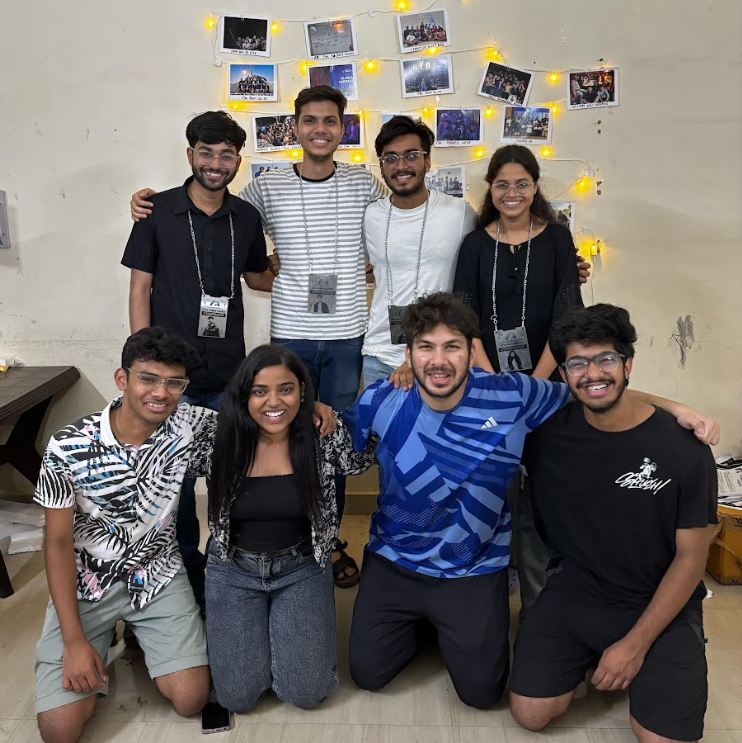
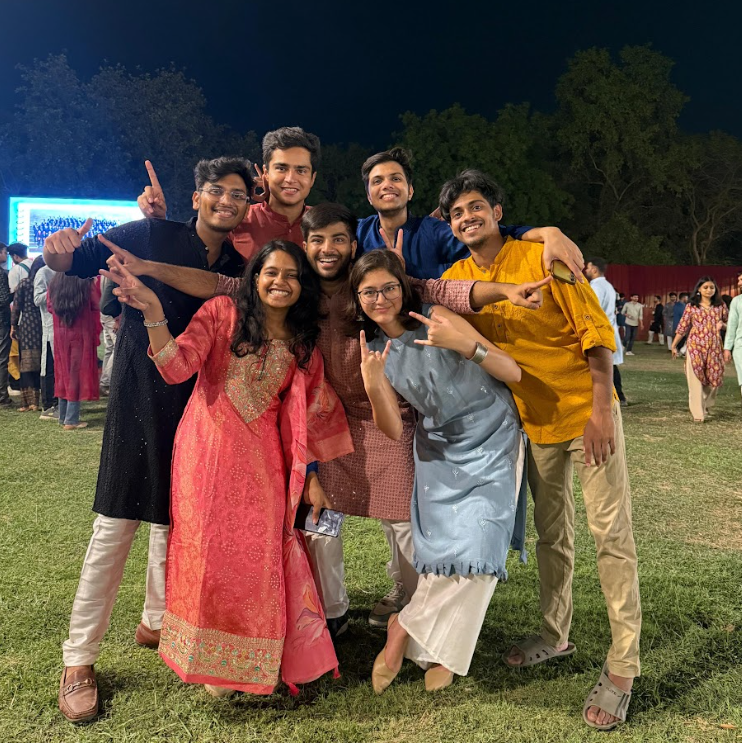
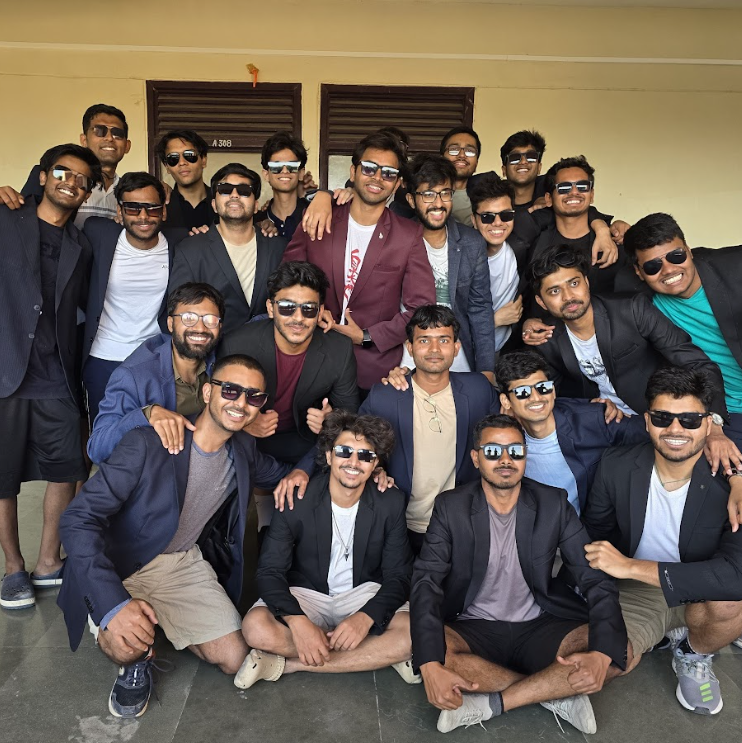
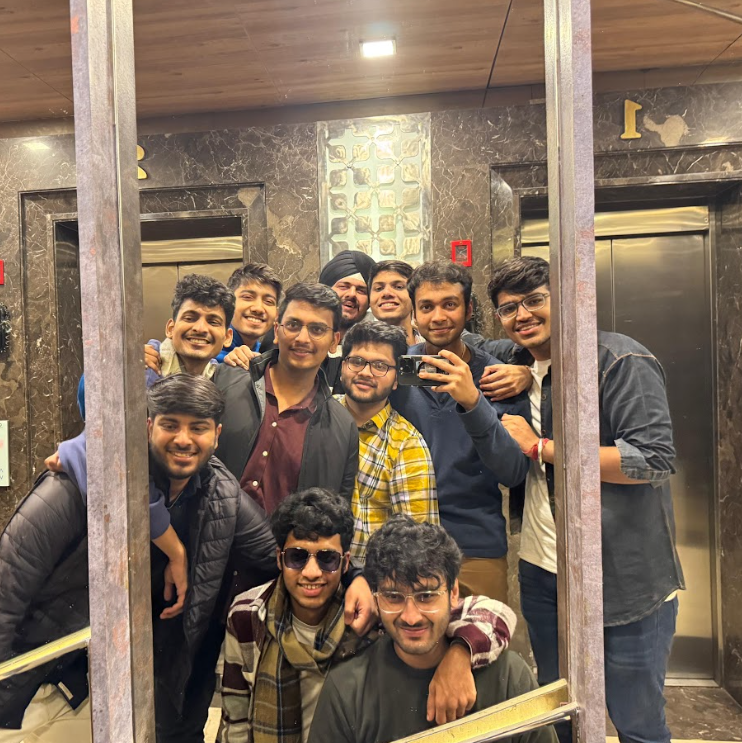
To all the friends, seniors, juniors, and batchmates—thank you. For believing in me when I was unsure. For pushing me when I doubted, trusting me when I faltered, laughing with me when I soared, and walking beside me when I slowed down.
And if, at times, I seemed hard to reach—know it was never about you. I’ve always lived a little quietly, a little inward. But I cared—deeply—even if I didn’t always say it. I noticed. I remembered. I carried those moments with me. I still do. And I hope, in your own way, you felt that.
College didn’t just teach me who I wanted to become. It taught me how to become.
From the wide-eyed infant of first year to the reflective old soul of final semester, I’ve lived an entire lifetime on this campus. And now, as that old soul folds up these years like a fading photograph—creased at the corners, warm with memory—I find myself smiling.
Because IIT Kanpur was never just a campus, it was a lifetime.
And what a beautiful life it was.
Written by: Shivansh Gupta
Edited by: Archit Rahalkar, Disha Singh
Designed by: Pragya Puri




